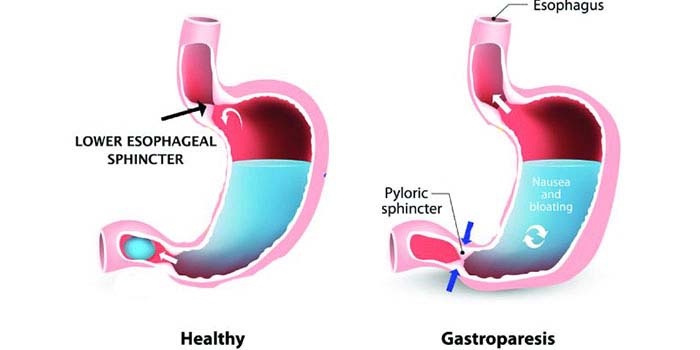
Best Doctor for Gastroparesis Treatment in Juhu,Mumbai
What is gastroparesis?
Gastroparesis is a condition that prevents your stomach from emptying itself of food properly. Normally, your stomach muscles can contract and easily move food through your digestive system. When you have gastroparesis, your stomach does this slowly or not at all.
The delayed digestion can cause symptoms and complications such as:
- Feeling full after eating very little
- Vomiting undigested food, which can lead to dehydration
- Malnutrition because you don’t absorb nutrients
- Heartburn and gastroesophageal reflux disease (GERD)
- Difficulty regulating blood sugar
- Bacterial infection from food that stays in your stomach for too long
- Blockages called bezoars that form from hardened, undigested food
Gastroparesis symptoms may come and go, or occur daily.
What causes gastroparesis?
Gastroparesis has a number of potential causes, and ultimately the cause isn’t always clear. It may result from damage to the vagus nerve, which manages your digestive system, including telling your stomach to contract and move food into your small intestine. The damaged nerve has trouble properly sending signals to your stomach and intestine.
Uncontrolled diabetes may damage the vagus nerve. In turn, gastroparesis often worsens diabetes. A crucial aspect of diabetes care is controlling your blood sugar, but gastroparesis causes unpredictable drops in blood sugar, making this task more difficult.
Stomach surgery also sometimes injures the vagus nerve, leading to gastroparesis. Additionally, certain medications, including narcotics and antidepressants, can delay digestion and cause your stomach to empty slowly.
How is gastroparesis treated?
Gastroparesis is a chronic condition that’s usually manageable with medication and dietary changes:
Medication
The physician may recommend a medication that you take before eating to help your stomach contract and push food through your digestive system. You may also take medication to control nausea caused by gastroparesis.
Dietary modification
Changes to your eating habits, with a focus on easier digestion, is often necessary to manage gastroparesis. The physician may recommend eating smaller, more frequent meals. You may also need to cut down on high-fat and high-fiber foods, which can be difficult to digest and lead to complications.
If you have diabetes, keeping your blood sugar under control through insulin, medication, or diet can minimize your gastroparesis symptoms. Because gastroparesis affects your blood sugar levels, the above treatment interventions may be necessary for you to effectively manage your co-occurring diabetes.


